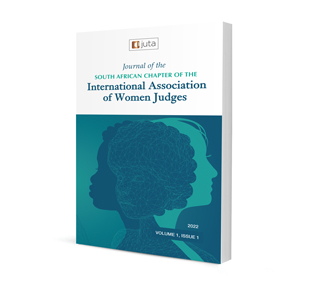Dismantling South Africa’s scourge – the Constitutional Court rules rape an abuse of power: Tshabalala v S; Ntuli v S

Dismantling South Africa’s scourge – the Constitutional Court rules rape an abuse of power: Tshabalala v S; Ntuli v S
Authors: Sisi Khampepe and Emily van Heerden
ISSN: 2958-4973
Affiliations: B Proc (Zululand) LLM (Harvard); Justice of the Constitutional Court of South Africa; BA (Law) LLB (Stellenbosch) BCL MPhil (Law) (Oxford); Law clerk to Justice Sisi Khampepe
Source: Journal of the South African Chapter of the International Association of the Women Judges, Issue 1, 2022, p. 111-117
https://doi.org/10.47348/JSAC-IAWJ/2023/a6
Abstract
In December 2019, the Constitutional Court handed down a significant judgment in the matter of Tshabalala v S, Ntuli v S 2020 (5) SA 1 (CC), holding that the doctrine of common purpose applies to the common-law crime of rape. The judgment has been hailed as an important contribution to South Africa’s jurisprudence and, particularly, to the judiciary’s promise to address gender-based violence in South Africa at a time when numerous cases of gender-based violence and femicide are facing the courts. This case note argues that the judgment is noteworthy for three main reasons. First, the judgment settles the uncertainty in South African law regarding the concept of instrumentality and the applicability of the doctrine of common purpose to the crime of rape. Secondly, it emphasises that rape is more than a sexual act; it is also an unconscionable abuse of power over the most vulnerable members of society. Thirdly, the concurring judgments centre the lived experiences of black women and acknowledge intersecting power inequalities in our society, thereby advancing the project of substantive and meaningful adjudication in South African jurisprudence.